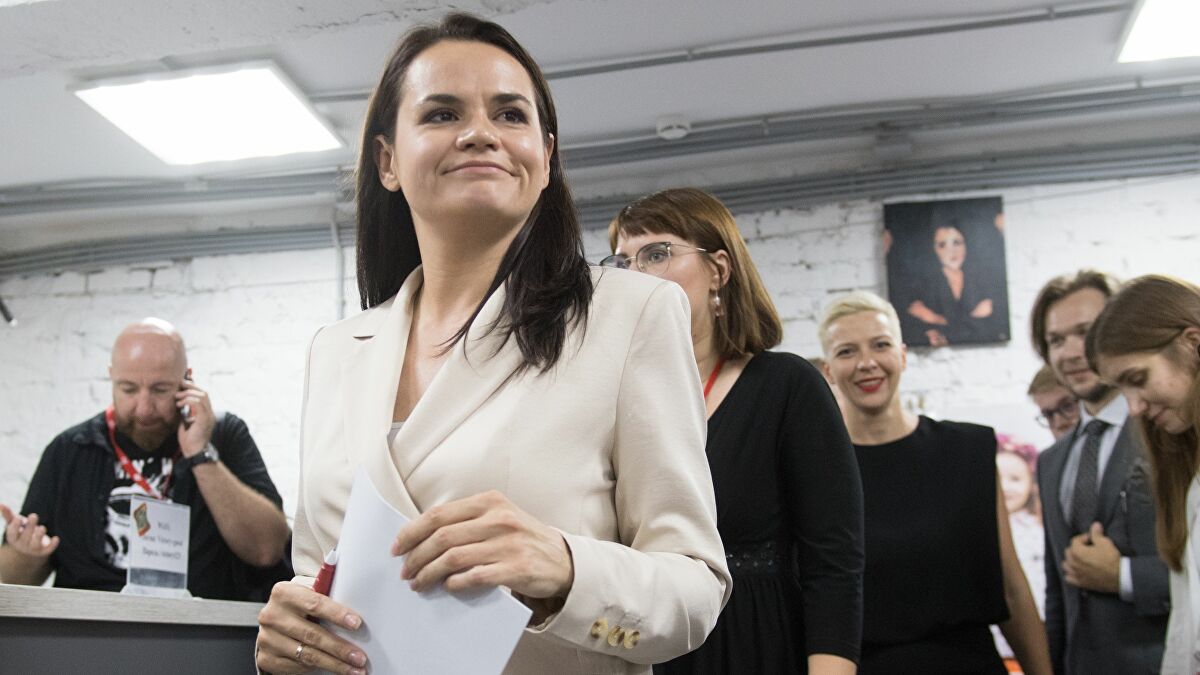On May 18, Belarusian authorities raided the editorial office of Tut.by, the country’s largest independent news outlet. They took away reporters’ computers and mobile phones and blocked Tut.by’s website. Around twelve of the portal’s employees have been arrested.
In response to the event, Sviatlana Tsikhanovskaya, the leader of Belarusian opposition, said:
“A group of people who hold power in Belarus is the real occupation regime: they kill media, kill political parties and civic communities, and kill us – on the streets and in prisons.”
Action needed now! The repressions against leading news portal @tutby are a clear attempt to destroy the remains of independent media in Belarus, which bravely covers the brutal reality and the situation on the ground. @osce @AnnLinde @riber @OSCE_RFoM @IreneKhan @RSF_inter pic.twitter.com/ZP9QN0qblW
— Sviatlana Tsikhanouskaya (@Tsihanouskaya) May 18, 2021
The attack on Tut.by represents an assault on freedom of expression and proves that the country’s government has no respect for citizens’ fundamental human rights.
It is not the first time an event like that has happened, however. Ever since the protests against Lukashenko’s regime broke out in August last year, the authorities have been repressing independent journalists for simply speaking the truth about the oppressive situation in the country.
Lukashenko’s war on independent media
Ever since Lukashenko came to power, he has been undertaking steps to control the media. Numerous newspapers, radio stations, and online websites have been closed, and freedom of expression online and offline has been almost completely suppressed. Journalists working on stories that criticize the regime have been prosecuted, and many of them have been physically abused by the state’s security forces.
Since last year’s elections, most coverage of the independent Belarusian media has been focusing on the mass protests advocating for free and fair elections. Journalists have been documenting the struggle of the people who want to restore democracy and have their rights respected but instead have to deal with the state attacking them.
As Amnesty International observed, “Journalists in Belarus have been doing heroic work to ensure the world knows about the authorities’ brutal repression of protests.” In turn, however, the police have been forcing them to delete their footage, breaking their equipment, and imprisoning them. Many reporters had their accreditations revoked, and several foreign journalists have been deported.
Law as an instrument of oppression
Just last month, the parliament of Belarus passed a series of amendments to the country’s Mass Media Law.
In addition to imposing restrictions on journalists, the government introduced changes to the Law on Mass Gatherings, limiting people’s freedom to protest and organize manifestations.
According to the new amendments, if the government asserts that the activities of individuals or organizations pose a threat to territorial integrity and public safety, they will be deemed extremist and can be prosecuted.
What that means in practice is that the state now has greater authority to continue the violent crackdown on protests.
The new laws make it challenging for journalists to carry out their tasks and represent an attack on the free press. Moreover, they violate citizens’ civil rights and allow the authorities to justify brutality and repression.
The response of the international community
Right after the elections, the European Union called them unfair and imposed sanctions on those involved in abusing protesters’ freedoms. The United States and the United Kingdom followed its example and also introduced sanctions against Belarus. Nevertheless, so far, these mechanisms have been unsuccessful in preventing the country’s government from violating civilians’ right to hold their own opinions and express them freely.
At the beginning of May, the European Union announced that it will impose another round of sanctions against senior Belarus officials. Josep Borrell, the EU foreign policy chief said that the organization is “currently working on the next sanctions package” and the details of what it entails will be announced in the next few weeks.
The international community has condemned the arrests, internet shutdowns, and the restrictions imposed on the freedom of expression in Belarus. Now, Sviatlana Tsikhanovskaya calls for more concrete measures, asking the EU to ‘launch a support program for independent media, protect journalists, and help them continue work despite the repressions.’
Belarus needs independent journalists so that citizens’ voices can be heard. Nevertheless, the attack on Tut.by shows that the efforts to protect the freedom of expression in the country must be intensified.
Katarzyna Rybarczyk is a Political Correspondent for Immigration News, a media platform affiliated with Immigration Advice Service. Through her articles, she aims to raise awareness about security threats worldwide and the challenges facing migrants.








